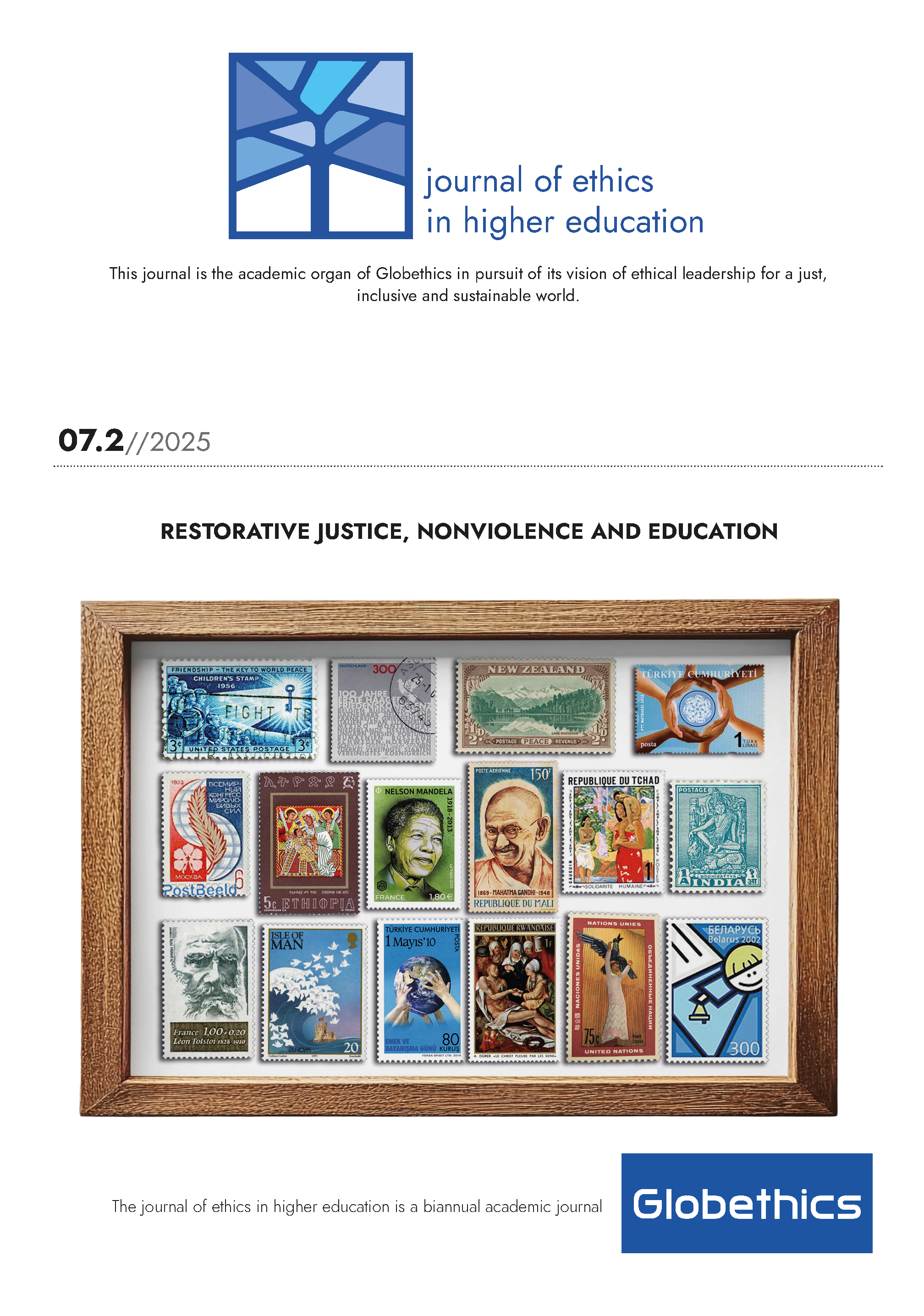Editorial Board: New Feb. 2026
A new Editorial Board Member has been appointed in February 2026.
Read more about Editorial Board: New Feb. 2026The Journal of Ethics in Higher Education is a biannual academic journal published by Globethics Foundation based in Geneva (Switzerland). As diamond open access journal we make sure to provide the reader and author with valuable and concrete publishing service: permanent and free access to published scholarly works for readers and no publication fees for the authors.
Focus and Scope:
The focus and scope of the Journal of Ethics in Higher Education (JEHE) is to answer to the request made by many faculty members from Globethics Consortium of higher education institutions, Network, Partners, Regional Programmes and participants to Globethics International Conferences to have a new space on Globethics platform for the publication of their research results in a scientific Journal.
The journal is aimed for academic experts in ethics and education, working at the forefront of ethical thinking in global and intercultural perspective, academic integrity and the philosophy and practice of higher education.
Communication on the theme of each new Issue can be found in the Announcements, and is sent by email to all registered readers and authors.
Open access:
Our type of open access journal is based on 1) no embargo period, 2) no requirement for users to register to read content.
A very low charge for the print version is necessary to compensate our costs.
Submitted-Accepted or Published versions of each article (the version of record) can be deposited by the author on their academic institutional repository or personal author webpage.
The Journal of Ethics in Higher Education as Globethics books Series are part of Globethics Publications. With Globethics Library they form Globethics Knowledge Hub.
A new Editorial Board Member has been appointed in February 2026.
Read More Read more about Editorial Board: New Feb. 2026
Issue 7.1 (2025) brings together scholarly contributions that critically explore nonviolence and anarchism not merely as utopian aspirations but as viable and practical frameworks for justice, solidarity, and social transformation. Contributions address a range of themes, including the relationship between resilience and nonviolent education; the role of communication and empathy in conflict resolution; critiques of militarism and transactional conceptions of politics; and the potential of associative civil societies and organizations in development and peacebuilding. By integrating philosophical, historical, and contemporary perspectives, Issue 7.1 (2025) examines how traditions of nonviolence and anarchism may inform constructive alternatives to violence in both theory and practice.
Issue 7.2 (2025) provides space for non-thematic contributions that engage with applied ethics in educational contexts and reflect on principles of sound institutional governance. Key areas of inquiry include the teaching of business ethics, intercultural dialogue for climate action, ethical management of cyber environments in higher education, digital ethics in Rwanda, and value reorientation within Nigerian tertiary institutions, among others.
Editor-in-Chief: Dr Ignace Haaz, Globethics Managing Editor, PhD in Philosophy, ORCID
2813-4370 (Print)
2813-4389 (Online)
Journal articles of the Journal of Ethics in Higher Education are published under the open Creative Commons License Attribution-NonCommercial-ShareAlike 4.0 International (CC BY-NC-SA 4.0).
